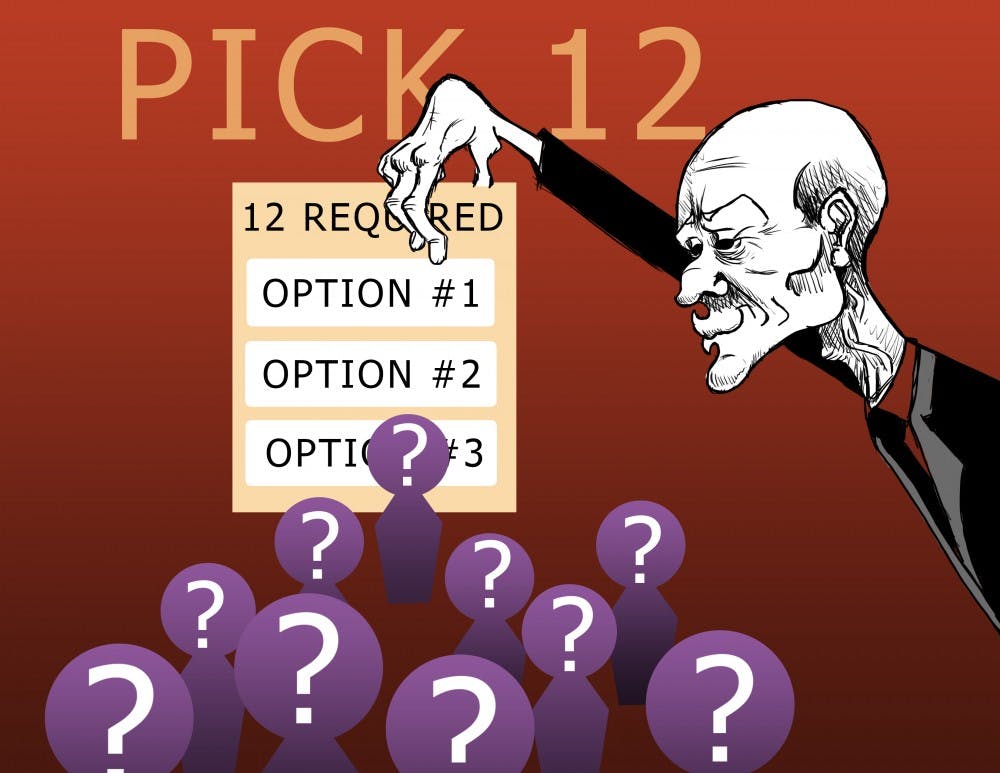In the past 30 years the cost of attending a public four-year college has increased 225 percent, according to the College Board. So it’s not surprise many UB students rely on financial aid.
And between scheduling classes, fulfilling requirements and struggling to make ends meet, students face a lot of anxiety over finishing their degrees.
But this year, due to ineffective communication and a clear lack of administrative organization, the Office of Financial Aid exacerbated those anxieties even further when they surprised students with the abrupt and unwelcome news they were not eligible for grants from the New York State Tuition Assistance Program (TAP).
Many students at UB rely on TAP, which contributes money toward the tuition of full-time undergraduate students who are New York State residents. Depending on a student’s income, the grant can range from $250 to approximately $2,500 a semester.
A $2,500 grant – more than a third of a semester’s tuition – can determine whether a student can afford to attend UB.
When that money is surprisingly revoked – just a month before the end of the semester – students are left with an unexpected and large bill, preventing them from registering for classes until they pay up.
But students who were expecting TAP often don’t have that money on hand, putting their degree – and sanity – in jeopardy.
So it’s shocking that the Office of Financial Aid not only waited until April 10 to contact students about their unexpected ineligibility for TAP, but also incorrectly notified other students who were actually still eligible for TAP – like last-semester seniors – and was slow to respond to queries and to take holds off their accounts.
The problem stemmed from the confusion surrounding TAP requirements which state New York State residents must be attending an in-state university and enrolled in 12 credits hours that are major or general education requirements or a free or restricted elective.
Although this requirement isn’t new, some academic advisers were apparently unfamiliar with the rule, and students who hadn’t faced problems with their eligibility in years prior now suddenly find themselves without aid.
But what’s even more troubling is how difficult it is to find this requirement on either the Office of Financial Aid and the New York State Higher Education Corporation’s (HESC) website. The Office of Financial Aid website states students must “be registered for at least 12 credit hours that are applicable towards the student’s degree” and the HESC website states, even more vaguely, students must “study full-time undergraduate (at least 12 credits per semester).”
The only way to figure out what courses count and which do not is to search for “Applicable Courses” on the HESC website. The page states that courses must be an “integral part” the student’s program of study. They must be major or general education requirements, or a free or restricted elective.
And the HESC doesn’t provide a definition of what free or restricted electives are.
It’s astounding the Office of Financial Aid revoked much-needed student aid without providing a clear definition of the requirements.
The requirement itself, and its vague presentation on various websites, is unwieldy to say the least.
Students should certainly be taking primarily relevant coursework that moves them forward to graduation in order to receive aid from the state, but this policy ignores the benefits students have from taking additional majors or minors. That simply doesn’t make sense.
Denying aid for students pursuing a well-rounded college education is an egregious misstep that negatively affects an otherwise commendable financial aid program that clearly has the potential to help many students earn their degrees.
Despite the problematic nature of these requirements, it’s the responsibility of the Office of Financial Aid to ensure that students are fully aware of these policies – and their enforcement – with plenty of time to arrange their class selection accordingly.
But academic advisers seem to have been left in the dark, too, when they should have been the first to know, so they could offer more accurate information to the students who rely on them for assistance. Advisers routinely encourage students to take on additional majors and minors but they apparently didn’t know how carefully they needed to help schedule students’ courses so those students could keep receiving aid.
And students didn’t hear the bad news until registration had already begun, leaving them with holds on their account. Students with the new bill on their account were forced to sit idly by as other students registered and took spots in classes – ones they probably needed to complete their degree. These holds very likely started a cycle of students being denied aid and their degree because they can’t pay the unexpected bill in time to register for required classes.
The financial aid office was disturbingly slow to respond to students, despite the urgency of the matter.
It’s also surprising that this is the first time The Spectrum has had students come forward with complaints about the requirement even though the Office of Financial Aid said they haven’t received any more complaints that usual – have students been having TAP unexpectedly revoked all along, or is this the first time UB has decided to enforce the policy?
The policy itself is extremely troubling as it interferes with students’ pursuit of a fulfilling and multifaceted education, and it’s clear that the financial aid office’s mishandling of the situation made a bad situation even worse.
The Office of Financial Aid has a duty to tell students up-front what the requirements are for aid and not leave them hunting through New York State laws and regulations. And now, the Office has a duty to respond to and fix the problems they’ve created through their lack of communication with advisers and students before even more students are forced to scrounge up thousands of dollars they already don’t have.
email: editorial@ubspectrum.com





